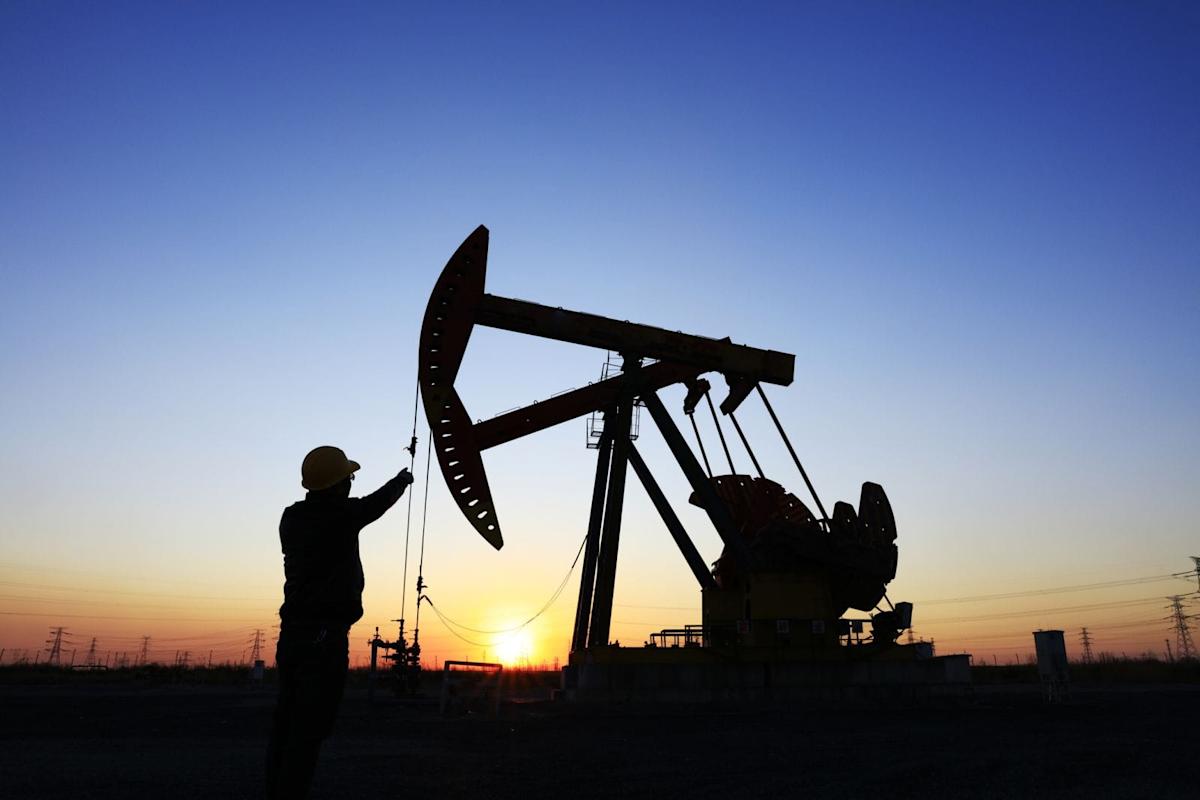Worker checking a jackpump at sunrise by zhengzaishuru via iStock
September WTI crude oil (CLU25) on Friday closed down -0.87 (-1.32%), and September RBOB gasoline (RBU25) closed down -0.0121 (-0.58%).
Crude oil and gasoline prices erased an early advance on Friday and moved lower due to a stronger dollar. Also, optimism for the US to reach new trade deals was dampened, which weighed on crude prices, after President Trump said the US has a 50-50 chance of striking a trade deal with Europe before next week’s deadline. Crude prices found some support on Friday after the S&P 500 rose to a new record high, indicating confidence in the economic outlook that supports energy demand.
Friday’s global economic news was bearish for energy demand and crude prices. US Jun capital goods new orders nondefense ex-aircraft & parts unexpectedly fell -0.7% m/m, weaker than expectations of a +0.1% m/m increase. Also, UK Jun retail sales ex-auto fuel rose +0.6% m/m, weaker than expectations of +1.2% m/m.
Oil prices have been undercut by expectations for Iraq to boost crude exports from its northern Kurdish region through the Iraq-Turkey pipeline, where oil exports have been halted since March 2023. The Iraqi government approved a plan for the semi-autonomous Kurdish region to resume oil exports. Kurdistan expects to supply Iraq’s crude market with 230,000 bpd of crude once exports resume. Iraq is the second-largest oil producer in OPEC.
Crude prices have underlying support from last Friday, when the European Union approved fresh sanctions on Russian oil due to its aggression against Ukraine. The sanctions package includes cutting off 20 more Russian banks from the international payments system SWIFT, as well as restrictions imposed on Russian petroleum refined in other countries. A large oil refinery in India, part-owned by Russia’s Rosneft PJSC, was also blacklisted. Additionally, 105 more ships in Russia’s shadow fleet were sanctioned, pushing the number of sanctioned ships above 400.
Concern about a global oil glut is negative for crude prices. On July 5, OPEC+ agreed to raise its crude production by 548,000 barrels per day (bpd) beginning August 1, exceeding expectations of a 411,000 bpd increase. Saudi Arabia also stated that additional similar-sized increases in crude output could follow, which is viewed as a strategy to reduce oil prices and penalize overproducing OPEC+ members, such as Kazakhstan and Iraq. OPEC+ is boosting output to reverse the 2-year-long production cut, gradually restoring a total of 2.2 million bpd of production by September 2026. On May 31, OPEC+ agreed to a 411,000 bpd increase in crude production for July, following the same 411,000 bpd hike for June. June crude production rose +360,000 bpd to a 1.5-year high of 28.10 million bpd.
Weiterlesen
